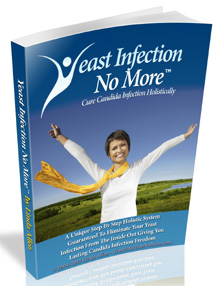Menopause and Yeast Infections - Tips And Advice In Treating Them
Free Video Reveals 1 Weird Tip To Quickly Cure Your Candida Overgrowth & Enjoy Permanent Freedom From Yeast Infections In As Little As 12 Hours - Guaranteed!
>> Yeast Infection Guaranteed Treatment Click Here <<
Menopause and yeast infections appear to be synonymous. Along with the hot flashes, mood changes and other problems associated with menopause, vaginal dryness is yet another symptom women have to contend with. Let?s explore how vaginal dryness can increase the risk of yeast infection.
The medical term for any infection of the vaginal tract is called vaginitis. The symptoms are very similar to yeast infections in that they include: itching, burning or painful during urination and/or sexual intercourse. One of the most common conditions associated with vaginitis is a yeast infection.
As debilitating as yeast infections can be, it is important to use preventative methods to ensure you do not become a candidate for this condition, especially during menopause. One of the contributory factors is having sex with multiple partners. In addition, the use of foams or jellies or other birth control items can cause infections as well. Try to limit your use of sprays or products that are not natural. Soap and water is the best method to wash your vaginal area.
Due to the fact that bacteria is the catalyst which aids in removing fungus from the genital area, it is important to avoid consistent use of antibiotic medications since they tend to kill the healthy bacteria which is needed. Wear cotton instead of nylon. Nylon does not allow for air circulation, but keeps the moisture in. It is also recommended to use proper hygiene practices when wiping your genital area. Always wipe from front to back, thus decreasing the changes of spreading bacteria from back to front.
Other ways in which you can assist in the dissipation of a yeast infection is to avoid intercourse for a time; take cold baths to relieve the itching; never douche, as you would be washing away the necessary bacteria needed to fight the fungus; and if necessary, use a vaginal cream. More importantly, however, seek advice from your doctor to determine the extent to which the yeast infection can be treated.
While we all experience menopause and its affects; yeast infections can be avoided if using proper hygiene habits. Whether using home remedies or conventional medications, at some point you may have to receive medical intervention of the condition does not go away or if it becomes chronic. Although many espouse the use of oils, creams, and other products; it is up to you to research this condition and find an effective method to treat it whether or not you seek medical advice.
You may also wish to research many of the holistic treatments available. For thousands of years, the use of holistic care in treating certain conditions was widely accepted. Perhaps you will discover it is a good alternative to this irritating and often nasty condition.
All Rights Reserved Worldwide. Reprint Rights: You may reprint this article as long as you leave all of the links active and do not edit the article in any way.
Terry Edwards provides helpful information on various health related issues. You can find out more about Menopause And Yeast Infections by visiting http://www.YeastInfection.InfoFromA-Z.com
Labels: dog_yeast_infection, male_yeast_infection, oral_yeast_infection, sex_and_yeast_infection, sign_of_a_yeast_infection

